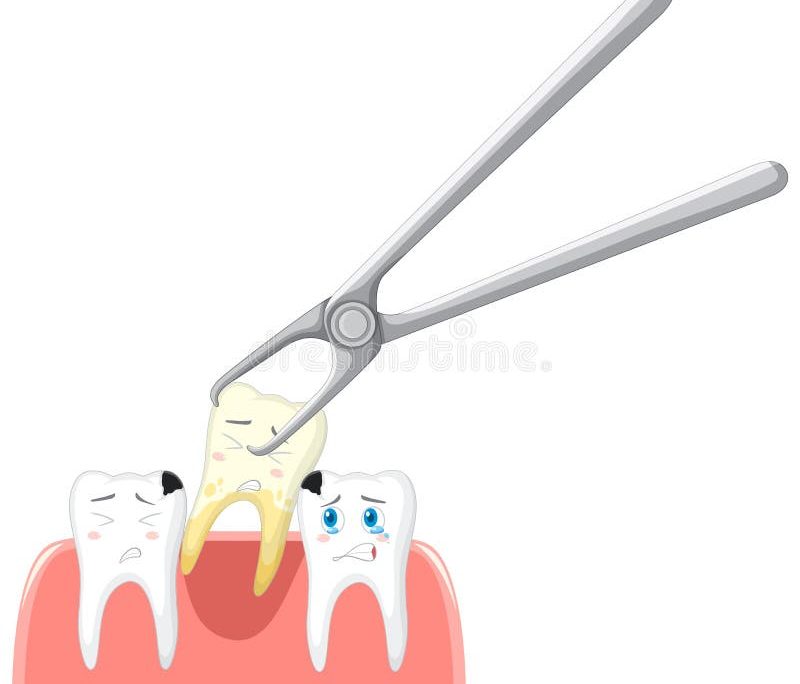
Tooth extractions: Reasons and disadvantages
Have you ever walked into a dentist’s office with a toothache and you did not want to hear anything short of that tooth being extracted because you have just had it to the core? Sometimes there are other forms of treatment that preserves the tooth because saving a tooth is always better than extracting it. This is something that we can discuss together and reach the best decision for you. There are many benefits of tooth extractions, but it is also important to be aware of the possible problems that can arise. Extractions are one of the most common procedures in dentistry, but they are not without their risks. People should consult with a dentist before deciding whether or not to have a tooth extraction done.
Let us first look at the reasons for extracting a tooth.
The immediate cost of the procedure is cheap: an extraction is a relatively low-cost treatment for a tooth badly damaged by decay.
After root canal treatment of a tooth with extensive decay and the tooth is not protected with a crown, the tooth is likely to fracture and sometimes the fracture is so severe that it necessitates the extraction of the tooth.
Treatment option in cases of severe gum disease: in severe gum disease, the tooth loses a huge part of the bone supporting it and it becomes highly mobile. Whereas bone grafting can be used to introduce new bone around the tooth to increase its support an extraction is often resorted to because of issues such as financial constraints.
Tooth extractions can be a treatment option for impacted teeth. Let’s talk about impactions. An impaction is when a tooth fails to grow into the mouth or just partly grows into the mouth because of restriction by either the bone or neighboring teeth. Why do they require an extraction? For the case of a partly erupted tooth, a common example is the wisdom tooth. Growing partly means that food is easily stuck between the tooth and the gum and this is difficult to clean hence the tooth can decay in this region or the gum can become very painful hence the need to extract it before it gets to this point. In the case of total impaction where the tooth does not erupt into the mouth but is stuck in the bone, they have the risk of developing diseases such as accumulation of fluid around it (cysts) or developing into a tumor hence the need to extract it.
A tooth extraction can be part of orthodontic treatment to eliminate overcrowding. Whenever you have an overcrowded mouth and you visit a dentist to have them aligned. Space has to be created and how is this done? By extraction of some teeth. This enables the remaining teeth under pressure from the braces to move into these areas thus aligning teeth and eliminating overcrowding.
What are the disadvantages?
The long-term cost of replacing the missing tooth is expensive. Replacing a missing tooth is usually more expensive than treating a diseased tooth. Replacement options range from dentures to crown & bridges to implants in order of increasing costs.
When you have an extraction and no replacement is done, the neighboring teeth may move/shift into the area where the tooth is missing and this can affect how you bite and also worsens oral hygiene since it is an area where food can pack and is difficult to clean.
Missing teeth affect speech. One of the functions of teeth is speech. Restriction of air between teeth and the tongue produces certain sounds and so in the absence of some teeth especially the front ones, some of these sounds may not be produced.
There is the risk of infection of the extraction site especially in cases where there is poor oral hygiene and this can lead to swelling and pain.















